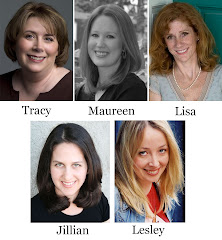And I mean very little, as setting is not one of my strong suits. My focus tends to fall toward the characters: their emotions and their interactions with others, and how these affect the unfolding plot. That being said, setting is crucially important. It's just one of those things that I have to work extra hard at.
Being able to see, smell, and even feel where the story is taking place is a critical element to good storytelling. Sometimes this element needs to take center stage, and other times it doesn't, but always the reader should have a sense of where the characters are while the scene unfolds.
For me, setting is nearly always the bits and pieces I need to drop in and fine tune through my editing process. Every now and then I get it right immediately, but usually during a read-through, I'll recognize that my characters could literally be anywhere--and in most circumstances, this is not a good thing. I need to anchor them within the world they exist, and detailing the setting is a great way to do this.
So, how do I add the details necessary to bring life to the setting? With the five senses. What does the character see? Touch? Hear? Smell? Taste? I don't usually attempt to bring every sense into focus in every scene, but I definitely will pick out one, two, or three, and use them as building blocks in order to give the reader that mindseye picture they need.
Think about the words you use when describing--oh, let's say a house on the edge of a lake--to another person. What does the house look like? How does the air smell? What are the colors you see inside? What about outside? What season is it? What does being there feel like? Perhaps if it's in the middle of summer, it's relaxing and rejuvenating. But maybe in the winter, when the lakefront homes are mostly empty, at dusk, it's creepy and gives you the jitters.
The setting can, and should, add to the story being told. It can add to the emotions the reader is feeling. It can tell them if they should prepare themselves to laugh, cry, or look over their shoulder in fear. It can leave them on their edge of their seats, or enchanted by the world being shown them.
So yes, setting is critically important, and is a valuable tool within every writer's arsenal. And, I have to say, it's one I'm continuing to develop every time I sit down to write.
Monday, August 24, 2009
Subscribe to:
Post Comments (Atom)


4 comments:
I love the example of a lake! Great post!
Thanks, Maureen!
I agree with you on the senses -- so important to creating setting!
You're so good about explaining the mechanics of this literary process. Can you come to my house this week???
Post a Comment